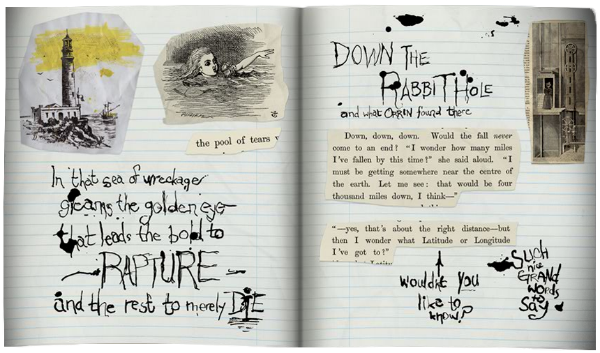This post has not been edited by the GamesBeat staff. Opinions by GamesBeat community writers do not necessarily reflect those of the staff.

There is a monthly prompt held by Bitmob called the Bitmob Writing Challenge. The challenge is helping quite a few community members find rather interesting topic ideas and vastly improve their skills.
What an awkward intro. Let's try that again.
Each month, we run the Bitmob Writing Challenge, which encourages newbie and veteran community members to write articles and sharpen their skills.
Besides finding spelling and grammar errors, my editor also grills me for using passive voice in my article submissions. One of the guidelines that all of our staff members read is an article by David A. Fryxell called "How Not to Write a Sentence" (which, unfortunately, does not seem to exist on the Internet). Fryxell dubs passive voice "the language of bureaucrats, of ivory-tower academics, and Pentagon paper-pushers." Passive voice is a tone that's easy to use unintentionally, but it also sucks the vigor out of your text. Fryxell lists 10 "sins" of bad writing, and we'll cover the first five of these for this month’s prompt: Passive Aggression.
The rules:
1. Select any article you have written or will write for Bitmob. In this case, an older article may be better than a newer one because you will notice mistakes that you missed back when you first wrote it. This is also a great chance to repost an article that you felt should have reached the front page or Spotlight. You can also partner with someone else if you want to.
2. Hunt down and find these calling cards of dull writing.
- Rewrite all of the sentences that use passive-voice construction (if any). Passive sentences abandon the traditional "subject-verb-object" word order. Changing this format can add variety to your voice but also robs your sentence of action. Passive-voice tip-offs include the word "by" and using the passive verb tense (to be + verb).
Bad: Motion control is used in unique ways by the Nintendo Wii.
Good: The Nintendo Wii uses motion control in unique ways.
- Get rid of any instances of the phrase "there is" or "there are." This error often combines passive tense with the addition of the dull, nebulous "there."
Bad: There are 250 Golden Bananas for masochists to collect in Donkey Kong 64.
Good: Masochists will hate themselves as they collect all 250 Golden Bananas in Donkey Kong 64.
- Identify and delete needless words like "quite a few" and "the fact that." A few writers are famous for their verbose sentences that sometimes span entire pages. You probably aren't one of those, so it's more likely that long sentences will make your audience fall asleep. Trim useless words and phrases like "rather" and "the reason why is that," which really don't saying anything anyway. Channel your inner Ernest Hemingway and kill them dead.
Bad: I can assure you that being able to trip in Super Smash Bros. Brawl is just stupid.
Good: Tripping in Super Smash Bros. Brawl is stupid.
- Eliminate any adverbs and change the verbs they modify so that they are stronger. If you didn't use any adverbs, improve on at least three verbs. (This is the combination of two rules.) While adverbs have their uses, they often act as a crutch for an unimaginative verb. I’ve had writing teachers tell me to never use adverbs, so as an exercise crank out verbs that sell your points without going into hyperbole.
Bad: Cloud’s Omnislash lets him quickly and rapidly cut his opponent.
Good: Cloud’s Omnislash lets him slice his opponent into cold cuts.
3. Post the article in the following format:
- Page 1: The edited article.
- Page 2: The original article or draft with the sections that you changed in bold. Afterwards, write a 100-200 word explanation about how you fixed your passive-voice problems and what bad habits you've identified.
4. Post the article with "Bitmob Writing Challenge" in the tags by July 31st.
You can also read through our Bitmob Writing Tips series for more advice about how to improve your articles and format them. Happy writing!
